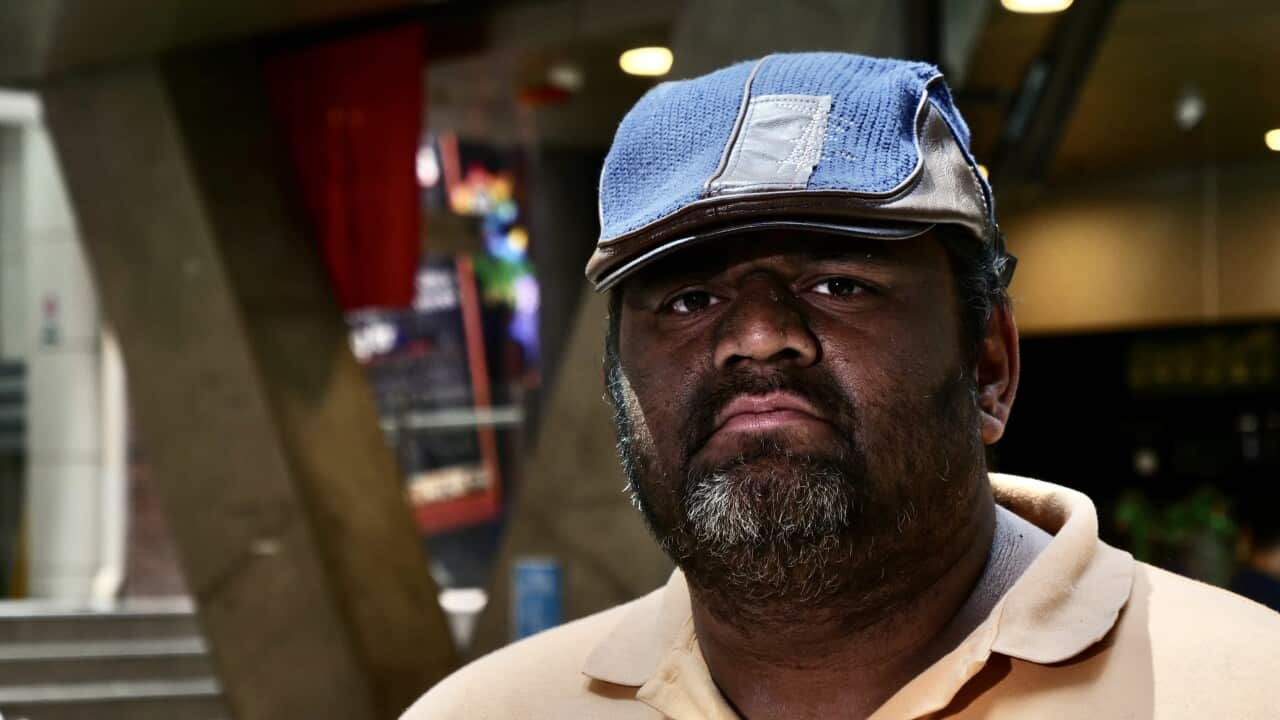KEY POINTS
- The migrant and low-income population is more vulnerable to workplace exploitation.
- According to the Fair Work Ombudsman, about 20 per cent of reports of workplace abuse come from migrant communities.
- It is a 'big illusion' that reporting exploitation of your labour rights will affect your visa status, lawyer says.
Fernanda* (name withheld), a Brazilian student in Melbourne, arrived in Australia in 2022 with the dream of improving her English and finding professional opportunities.
With a degree in fashion design, she found a job at a wedding dress atelier as a seamstress and embroiderer.
But she said the joy of working in her field of expertise in Australia soon turned into a nightmare.
“We could only fill our water bottle once a day, and we could only go to the bathroom once in the morning and once in the afternoon because he [the business owner] had security cameras and checked how many times we left the place,” she told SBS Portuguese.

Fernanda dreamed of working in fashion, but said she experienced workplace exploitation. Credit: Supplied
When she felt unwell, she said she was advised not to leave her station, so as not to delay the delivery of the dresses.
She claimed that she did not receive differentiated pay for overtime, nights and weekends, and was often threatened with "suspension" of work.
“He [the owner] once asked me to help finish a dress on the Saturday shift, which was initially supposed to finish at 4pm, but we finished at 7am the next day. No, he didn’t pay any overtime differential, just the normal rate for the week,” Fernanda said.
How to protect yourself from exploitation at work
Living abroad is a dream for many people, but a lack of information about working rights can prove a major obstacle.
In Australia, the migrant and low-income population is more vulnerable to being exploited in the workplace.
According to the, migrants make up about seven per cent of the Australian workforce, but accounted for 17 per cent of all formal disputes completed, about 20 per cent of anonymous reports received, and 15 per cent of all litigation initiated in 2022-23.

The migrant and low-income population is more vulnerable and susceptible to being exploited in the workplace Source: Moment RF / Jasmin Merdan/Getty Images
Morais explained that getting in touch with the union relevant to your industry or occupation is the first step to obtaining information and support in the case of work abuse.
“I recommend the unions, and the local places of free legal support, which are the community legal centres. If it is confirmed that it is a case of exploitation, the advice is to report to Australian Fair Work, and in the case of physical or psychological injury at work, contact the work's legal advisers,” he said.

Valmor Gomes Morais is a lawyer who acts as a case mediator in Queensland. Credit: Supplied
However, Morais emphasised that this is a common misconception among migrant workers.
“In fact, it is a big illusion not to request your rights due to any fear related to visa status. In Australia, immigrants have the same rights as locals. If in your workplace, the Australian employee earns more than you in the same role you are performing, you have the right to assert your rights.
"But unfortunately, many employers have the practice of exploiting immigrants, and this has been happening for many years with millions of people,” Morais said.

Contacting union and local councils is the first step to getting information and support in the event of abuse at work, lawyer Valmor Gomes Morais said. Source: Moment RF / Longhua Liao/Getty Images
'Finding courage'
Morais said financial needs also play an prominent role in many people accepting or living with mistreatment.
Watched by her boss, Fernanda said she unconsciously started to eat and drink less to avoid the need to leave her work station.
“My friends and flatmates started telling me that I was losing weight,” Fernanda said.
“And every time I called my mother, talking about work brought mixed feelings. It was the area [of work] I wanted, but I felt like I didn’t know how to sew anymore.”

Fernanda said she only began to realise the seriousness of her situation after she worked 22 hours straight without extra pay. Credit: Supplied
The next day, she said her boss asked not to leave her work station because she had gone “to the bathroom a lot” during her previous shift.
"After that I became so upset and angry that I had the courage to tell him [the boss] that I was leaving the job. He asked me to calm down, said we could talk better later, but I said that it was my final decision. So, he told me to finish the shift and leave quickly. I couldn't say goodbye properly to my colleagues," she said.
Morais said he considers Fernanda’s experience to be a case of explicit exploitation.
"Many of her rights were violated in this situation - what we call ‘awards’, the collective contract between companies in that area of work, and what are the minimum conditions and remuneration that exist in that market.
“In her case, she has full right to report to Fair Work Australia and pursue her rights after that," he said.
Various forms of exploitation
People can fall into a situation of work exploitation due to lack of information, Morais said, explaining that labour abuse goes beyond underpayment.

Labour exploitation goes beyond underpayment.
Among these, employers may commit wage theft by paying below the minimum hourly rate, only allowing unpaid breaks, refusing to grant leave, and not paying appropriate allowances as defined in the employee’s contract.
More information is available at the and







